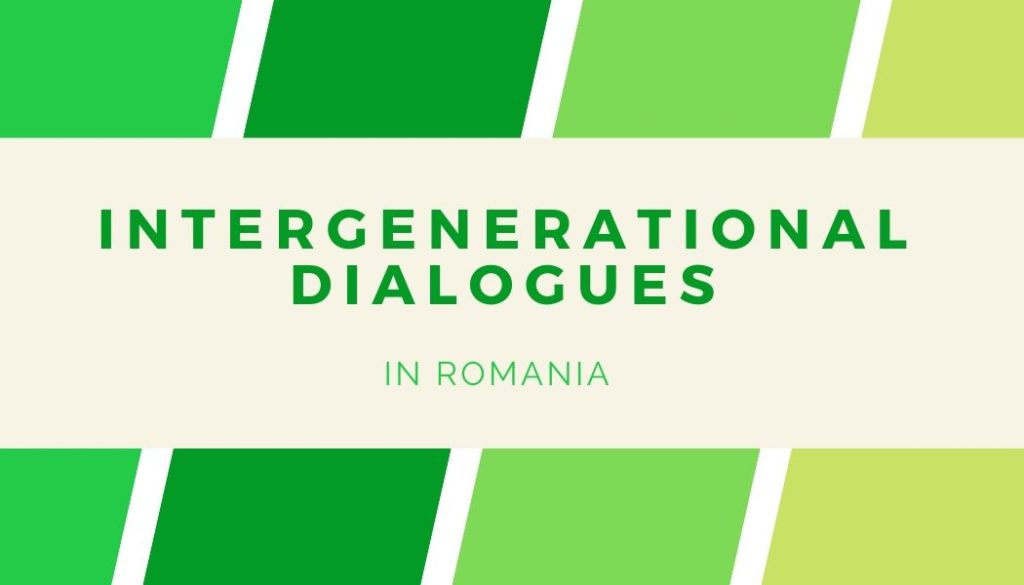Intergenerational learning is a very novel concept on the Romanian scene, at least at a formal level. Democratic citizenship, as well as participatory development, are concepts that have been shaping up only later in the transitory Romanian society.
When we consider intergenerational learning, we must bear in mind the huge gap between the generations involved, which does not refer to age alone as it does to the social contact between the generations involved.
On one hand, we have the elderly were born and brought up in totalitarian communist times with a distorted system of social values where everybody was spying on everybody, thus leading to lack of trust and cooperation among the members of the society. Social trust, spontaneous association and civic participation were foreign subjects until 1990. And although 30 years have passed, the process of social restructuration has been rather slow and inconsistent.
The frail Romanian democracy which started to shape up in the 90s brought along massive social confusion. The sudden change of social attitudes, the need for tolerance and acceptance are still to this day, 30 years after the revolution, hard to swallow for some of the older members of the society.
On the other hand, we have the younger generation, born well into the democratic contemporary society, a generation which does not understand geographical limitations, a digitally native generation, whose patience over small things is limited and whose dependence on gadgets is sometimes worrying. There are 40-50 years between these generations, but the difference in attitudes and social values is worlds apart.
However, the generation gap at the social level is currently addressed by a series of actions at the local and national level. There have been a number of life-long learning projects and adult education which targeted this particular topic and as a result, there have been actions implemented at the local level in which intergenerational learning became an efficient tool.
In this context, ACTA centre has conducted a series of activities in which grandparents and grandchildren took part in two-way learning activities and organized at Colegiul National “Emanuil Gojdu” as part of the study groups organized for the GeIN Project. I will describe two of the activities which took place in May 2019.
The first one was a discussion about the social and educational differences between now and then. The seniors shared their memories of their time at school, with anecdotes and photographs. Their trip down memory lane was often dramatic but also amusing at times. The teenager group took a genuine interest in the topic and vivid discussions followed, which lasted well over one hour. The most prevalent conclusion was the fact that regardless of how much society has changed in terms of technology, human values, ethics and morals are basically the same. And in what educational expectations are concerned, both groups agreed that no matter what the methods or technologies are, the school has the role to direct youngsters towards a meaningful life both in terms of career and personal development.
Another topic touched upon in another meeting was family values, in which participants, the same group of grandparents and teenagers, were asked to list the most important three family values. The overall cited three, by both groups were love, communication and respect. But while the youngsters cited honesty, openness and tolerance, the elderly ranked obedience and decency as key factors for happy family life. The groups agreed to disagree on these issues and accept that as society changes, family values adapt. Both groups had to take note of the difference of outlook on family life and thus become more tolerant of the different opinions expressed in the discussions.
All in all, the intergenerational discussion we organized proved to be a wonderful occasion for friendly and productive interaction between teenagers and the elderly.

